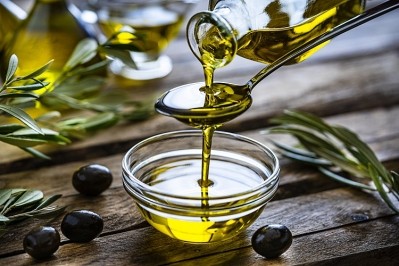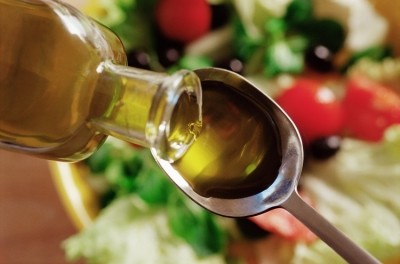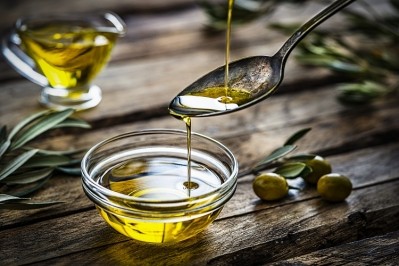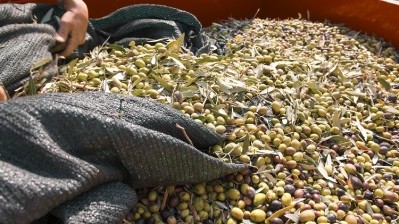When will the price of olive oil come down?

The past two years have seen the price of olive oil go from affordable to astronomical. In fact, such is the staggering increase that #oliveoil has been regularly trending on social platform X alongside comments like "emptied my ISA for olive oil", posted by @deathofbuckley.
Politicians have also raised grievances, alarmed by the resulting increase in fraudsters ready to make a quick buck on the price hikes.
“The commission has zero tolerance for fraud,” said a spokesperson for the European Commission. “With a view of providing consumers with good-quality olive oil in the EU, the commission organises annual workshops and fosters collaboration between EU countries to ensure that checks are correctly implemented and ensures the exchange of relevant information for those working on olive oil.”
And retailers have been accused of elevating prices amidst the chaos.
“The initial price of our products has increased only by 3%,” said Carles Peris Ramos, general secretary of the farmers association, La Unió. “And still, consumers are paying 59% more when buying at large supermarkets.”
However many support supermarkets, citing the challenges they face in maintaining supplies for customers.
“Supermarkets are facing an incredible pressure to maintain stock and availability on shelves despite supply shortages, increasing transport costs and record high prices,” Ananda Roy, Consumer Goods Industry Advisor at market insight firm, Circana, tells FoodNavigator. “There is no specific evidence that there is further price gouging - if anything, availability of other options including blended oils has increased to help consumers looking to mitigate the impact of high prices on their grocery spend.”
But, regardless of fringe issues impacting price, supply remains the primary factor keeping olive prices, and by extension olive oil prices, determinedly high.
“The increase has been caused by drought conditions, particularly in southern Spain, which is the largest producing country,” Lisa Mullins, marketing manager for Italian olive oil brand, Filippo Berio, says.
This all begs the question, are there signs to indicate growing conditions for olives will improve? And will the price of olive oil ever come down.

Will the price of olive oil come down?
“Absolutely,” Jeremy Gibson, marketing director at Napolina owner Princes Group, believes. “Official forecast figures from both the Junta de Andalusia and Spain Ministry of Agriculture suggest we’re in for a bumper 2024/25 olive harvest.”
This is hugely positive news for the olive oil industry and will offer hope to beleaguered consumers. As a matter of fact, the forecast isn’t just positive, it could pave the way for price drops as supplies are strengthening.
“In Andalusia alone, a harvest of 5,347,700 tonnes is expected, which equates to approximately 1,021,000 tonnes of olive oil. If this tonnage is achieved, this will mark a 76.6% increase from last season and an increase of 19.7% on the past five year’s average,” says Gibson.
Read more: The olive oil crisis – a timeline
It appears that fears the industry could be in a continuing state of decline have also been allayed as olive trees are recovering from the severe drought conditions that have blighted them over the past two years.
“Olive oil harvests for 2024/2025 are projected to be significantly higher than the year before, helped by rain and mild temperatures in Spring, which created better growing conditions,” says Gibson. “This ideal climate improved the state of the olive trees, previously decimated by the dry weather and heatwaves experienced across Europe last year.”
However, while supplies are recovering, the price of olive oil may not drop as quickly as consumers might hope, owing to increasing global demand.
“Demand from Asia and other markets, that are willing to pay a premium for available exports, remains high,” says Circana’s Roy.

Though this increase in demand across certain markets spells good news for manufacturers, it could also be countered by a decline in demand in Europe, as some consumers have sought alternatives to expensive olive oil.
“Concerns have emerged regarding consumption trends, with market players noting a decrease influenced by the elevated retail prices of olive oil compared to alternative cooking oils such as sunflower or rapeseed,” says Kyle Holland, Senior Market Reporter for Oilseeds and Oils at market insight firm Expana. “This concern is compounded by fears of an economic recession within the EU, which historically leads consumers to seek more affordable alternatives, potentially dampening demand for olive oil at current price levels.”
Taking all of this into account, olive oil prices are expected to drop over the next twelve months, with Circana forecasting a volume price reduction of 31.2% over the next 12 months.
It’s important to note this positive outlook depends upon the continued success of olive crops, a variable which is placing the industry under immense pressure.
"Although olive trees are incredibly hardy, their crop is highly susceptible to weather conditions including frost, drought, rain, and hail, as well as pests," said a spokesperson for food and beverage distributor, Maltby&Greek. "The increased variability in the weather we are seeing from climate change has had a big effect over the past few years. Heat waves, drought and wildfires can also completely kill off an olive grove, which will take many years to be replanted and come back into production (they hit their stride in their 50s and can live 600 years or more)."






















